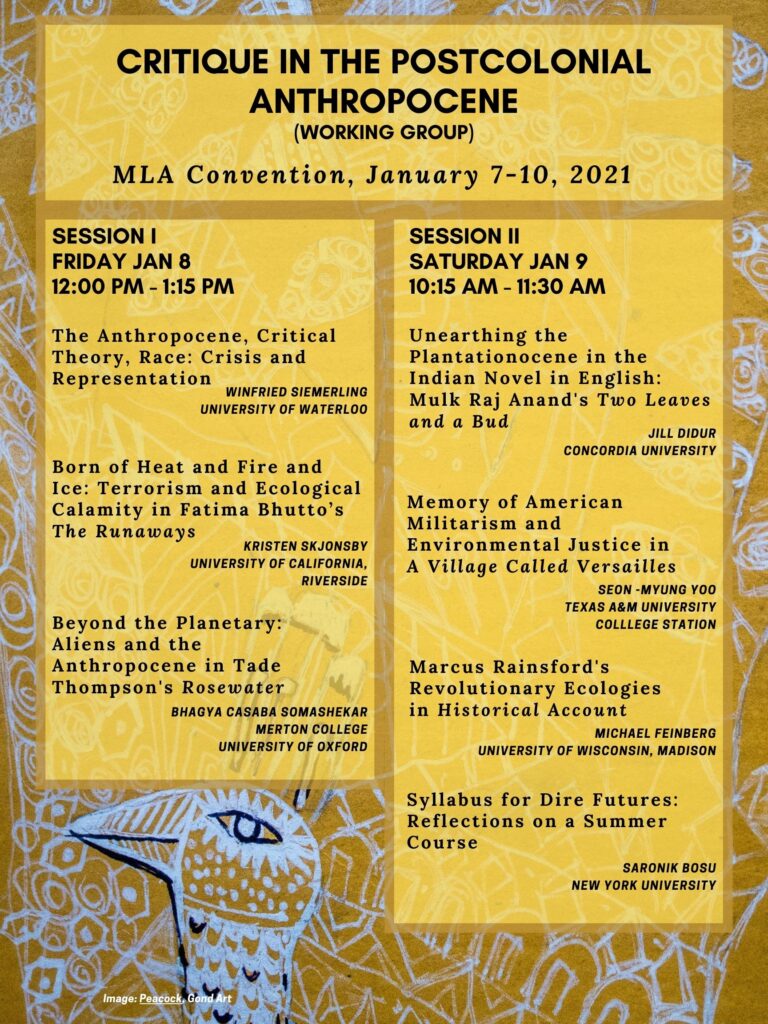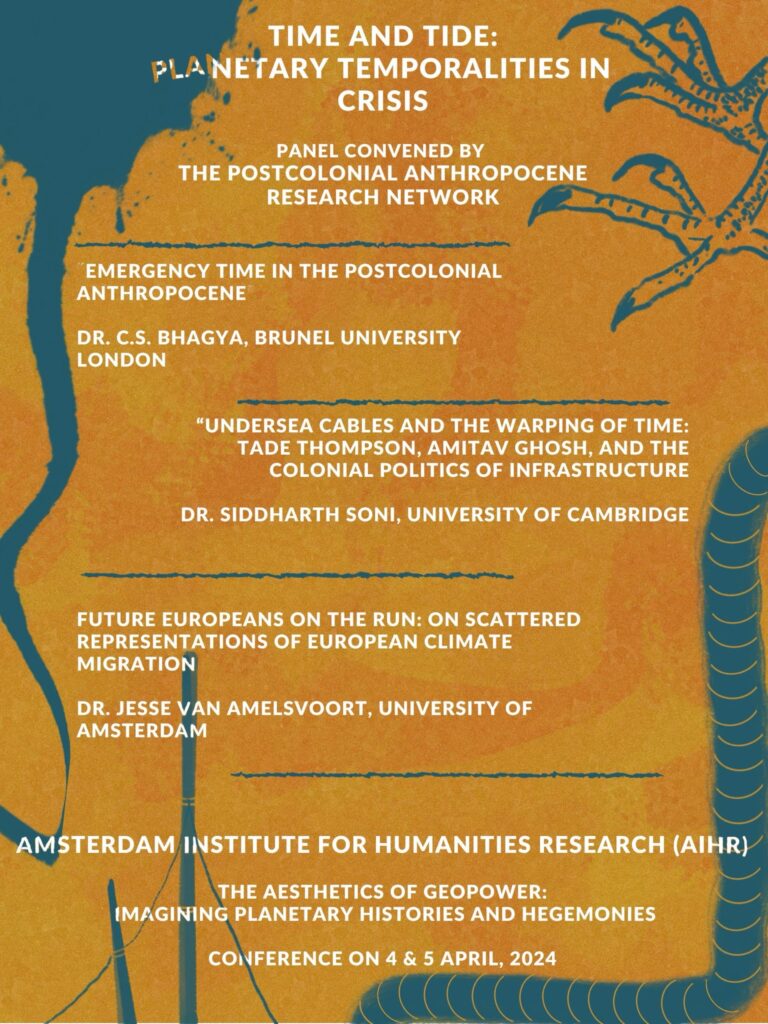Summer Reading Group 2020 and MLA working group papers 2021

Organizing a summer reading group was part of our effort to collect our research network together before actually meeting for the sessions of the MLA 2021 convention, planning for which had initially introduced many of our members to each other. Since we are a group of scholars who work in different disciplines—literature, art history, legal studies, among others—the reading list we wanted to work with had to reflect our diverse interests and orientations to the ‘Postcolonial Anthropocene.’ We therefore collated a reading list after sourcing suggestions from different members and by grouping different texts according to important thematic clusters. The reading group also became a way of keeping abreast with members’ individual research and, quite serendipitously, became a form of support during the height of the pandemic and lockdown as we signed in from different locations.
We met for four sessions over July and August 2020, and read excerpts from work by a variety of thinkers including Heather Davis and Zoe Todd, Elizabeth DeLoughry, Amitav Ghosh, Timothy Morton, Anna Tsing, Alison Bashford, and Sarah W. Tracy. The pivotal questions we returned to over these meetings included thinking about the genealogy of the Anthropocene, especially in relation to the emergence and global expansion of capitalism and colonial enterprises. As our concern was to examine the relationship of the colonial, decolonial and postcolonial as temporal markers and ongoing processes, we frequently touched upon questions pertaining to how we could define ‘the Postcolonial Anthropocene’ and why ‘the post/colonial’ was an important category to highlight in discussions of the Anthropocene.
Given the high interest amongst our network members in literary representations of environmental issues and climate change, besides dedicating a session entirely to literary forms and mulling over their importance in staging or intervening productively in ecological crises, we also thought about what it is that fiction does or could do to arbitrate these questions in ways that are unique and distinct from other forms of writing and theory. This was also a question that was vigorously debated during our working group meetings during the MLA sessions. The reading group meetings helped establish a foundation of theory for members and clarified key questions we expect to take forward in exciting ways in future meetings of the network.
“Time and Tide: Planetary Temporalities in Crisis” Conference Panel, April 2024
Members of the Postcolonial Anthropocene Research Network will be speaking at the conference “The Aesthetics of Geopower: Imagining Planetary Histories and Hegemonies” at the University of Amsterdam in April 2024.
The panel, which focuses on crisis time in the Postcolonial Anthropocene will examine a recurring problem in cultural work on the Anthropocene, which concerns the limits of existing representational strategies in conveying the severity of the planetary climate crisis (e.g., Chakrabarty, Johns-Putra, Bould). It will add to existing conceptualizations of this problem by combining a postcolonial perspective with the study of time and temporalities. In other words, the panel’s concern is not only the geographical scale of the hyperobject that is the Anthropocene (cf. Morton 2013), but the relation between past, present, and future that is also at stake in environmental collapse and the relationship between humans and planet. Writing about locations as diverse as India, Nigeria, and Europe, the speakers in this panel will think through what it means to inhabit the radically changing time that is our contemporary postcolonial moment.
The experience of time across these locales is out of joint and in crisis: as anthropogenic climate change announces the return of past emissions, the stability of the future is cast in doubt.
Whether it is sentient life only slowly catching up with planetary changes (in C. S. Bhagya’s paper), time becoming material in undersea cables (Siddharth Soni), or Europeans confronting the possibility of becoming climate migrants (Jesse van Amelsvoort), the panel will examine the ways in which aesthetic representations rush to catch up with changing planetary tides.
The panel is scheduled for 15:30 – 17:00 (Doelenzaal), at the UB Singel, University of Amsterdam, on 5 April 2024.
